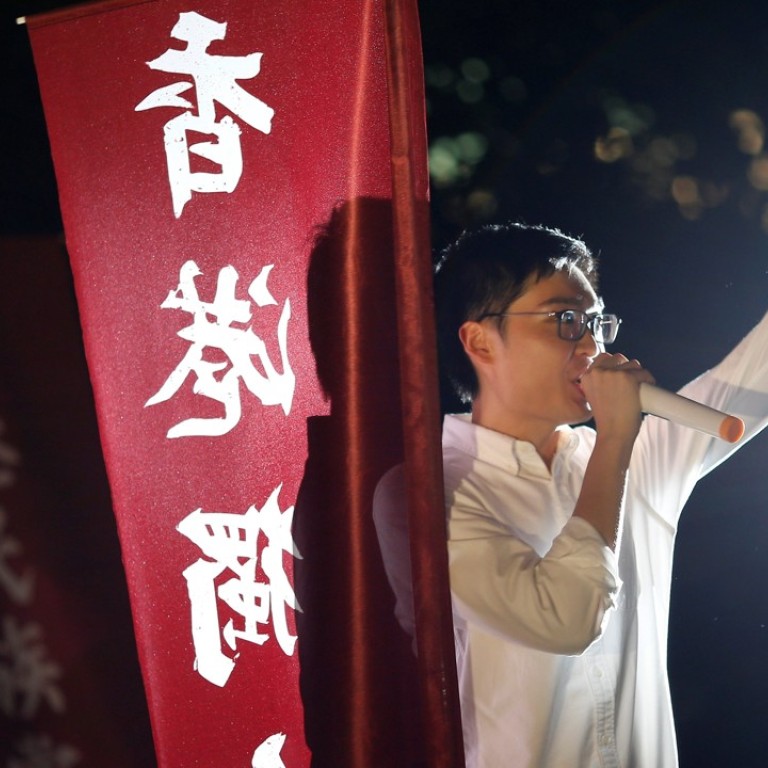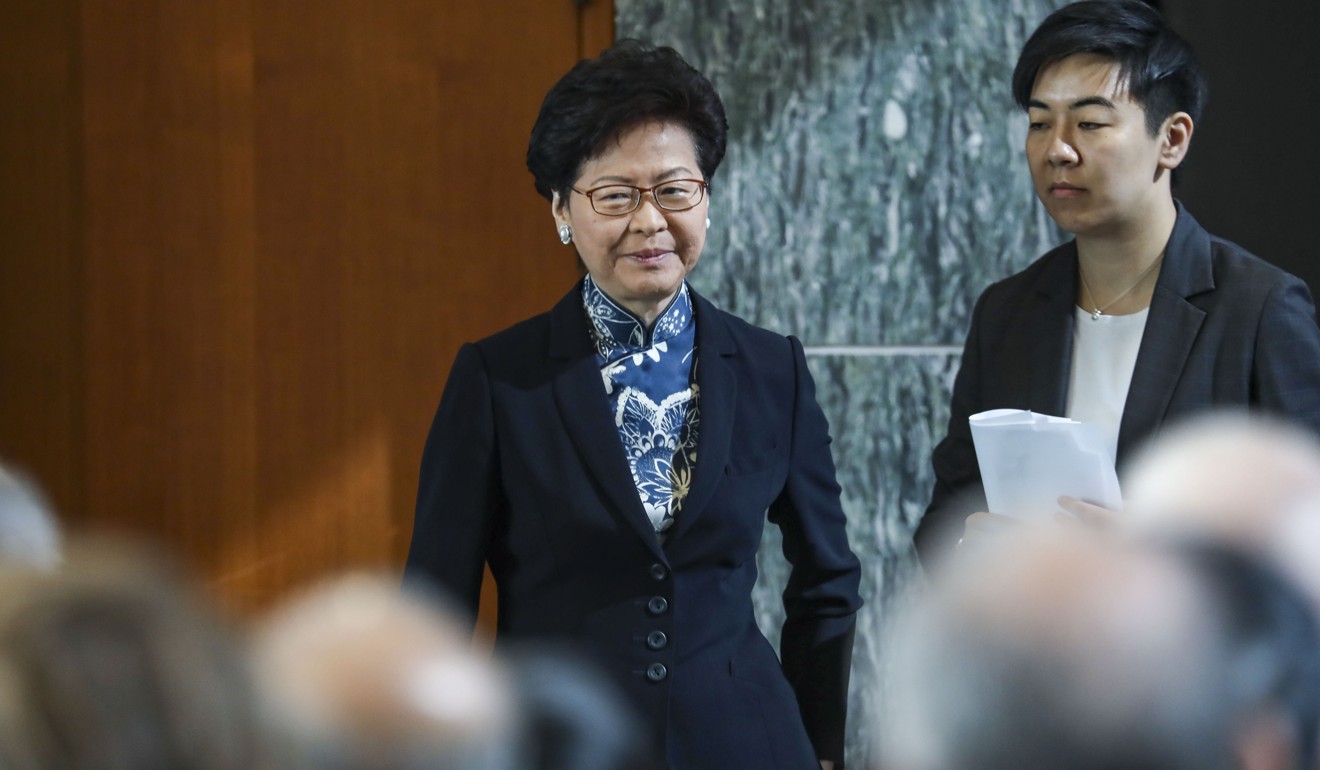
Localist Andy Chan says officials wrong to ban Hong Kong National Party as it is run by a registered company subject to different laws
- Founder reveals party is run by company called C&N Limited, listing him as sole director
- Observers say he is hoping technical details of localist group’s founding will provide legal loophole
Hong Kong National Party founder Andy Chan Ho-tin has argued that the authorities were wrong to ban his party under the Societies Ordinance because it is run by a registered company that comes under a different set of laws.
For the first time, he revealed that the party was run by a company called C&N Limited, registered under the Companies Ordinance with him as its sole director.
Chan pointed out in his appeal that the Societies Ordinance, which covers various interest groups, does not apply to a firm registered with the Companies Registry.
Drafted by his legal team, Chan’s appeal said there is no legal basis to ban the HKNP “which is registered as C&N Limited” from operating or continuing to operate and any dispute by the Security Bureau was better dealt with by the courts.
Companies Registry records show that he bought C&N as a ready-made company, with all registration paperwork done, before the 2016 general election.
Does separatist party ban threaten Hong Kong’s freedoms?
The party’s objective at the time was to achieve independence through lawful and peaceful means.
Chan filed an appeal with the courts to review the rejection, but it is understood that no hearing date was fixed.
The Security Bureau declined to comment on whether C&N, as a properly registered company still in operation under the Companies Ordinance, was also subject to the ban on the HKNP.
Under the Societies Ordinance, it is a criminal offence to operate the party, claim to be a party member or provide it any assistance.
Chan and the Companies Registry did not respond to enquiries and his lawyer declined to comment.

Commenting on Chan’s line of argument, lawyer Alan Wong Hok-ming said that while it might trigger the Companies Registry to look into C&N’s operations, the case also illustrated the grey area under the Societies Ordinance when it comes to imposing a ban.
“If HKNP is banned, would it mean its operating entity is banned too?” he asked.
Chan is free to set up or operate any company, as long as it is not used to do anything for the HKNP
He also questioned whether Chan could simply rename his party and continue running it under the company.
Exco member Ronny Tong Ka-wah SC said that as long as C&N no longer acted on behalf of the banned HKNP, it could continue running.
“Chan is free to set up or operate any company, as long as it is not used to do anything for the HKNP,” he said.
Chan and party founder Chow Ho-fai filed separate appeals against the ban to the city leader and Executive Council, arguing that the Security Bureau had ignored the HKNP’s stance of seeking independence in non-violent means.
The authorities have accused the HKNP of having worked out a plan to seek independence using “whatever effective means” and declared that it posed a threat to national security and public order.
The Security Bureau earlier rejected Chan's application to make an oral defence against the ban, saying that written submissions were sufficient.
Chan has argued that this is unfair to him procedurally and has asked to appear before the Exco to present a verbal defence before the appeal is considered.

